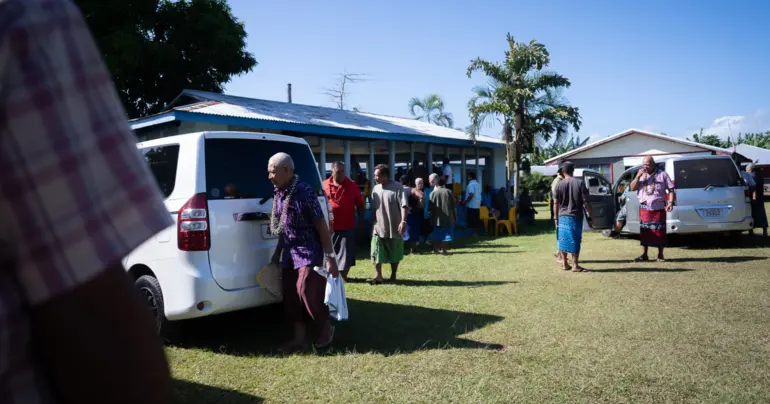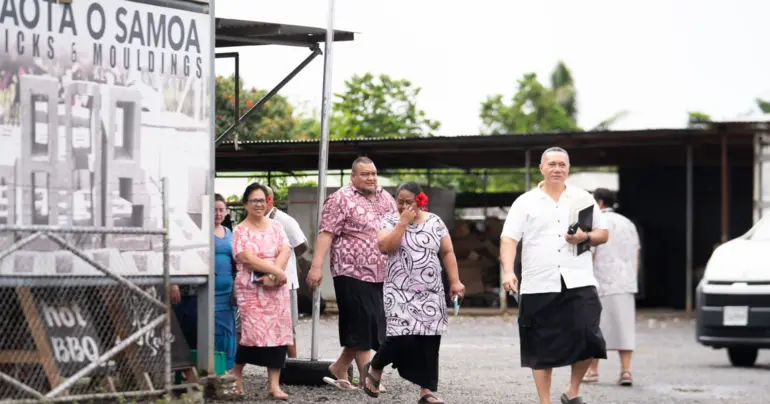Preventing a dengue outbreak is a national concern
There is a dengue fever outbreak looming and this is something not to be taken lightly. Dengue fever is life-threatening and it is of national concern. Steps must be taken before it gets out of hand.
The Ministry of Health has said they would look at the next report to see if the cases of dengue fever are on the rise and then they would decide whether to declare an outbreak or not. This means that Samoa is one step away from an outbreak.
According to the World Health Organisation, more than half of the world's population is at risk of dengue infection. Each year, an estimated 390 million dengue infections occur around the world, resulting in up to 36,000 deaths.
In the last few years, most nations that did not experience dengue fever reported cases of it, and tropical countries that are known to have dengue had double or triple the figures of the cases reported.
Scientific studies have linked the increase to climate change. The last few years have had record-high temperatures. Even when it is supposed to be colder, it is warmer than usual. Such warm conditions are conducive to breeding mosquitoes.
Dengue typically causes short-term symptoms such as rashes and joint pain but the disease can be life-threatening in severe cases.
Mosquito bites spread the disease to humans, and public health experts say that warmer winters that don’t kill enough mosquitoes are one cause contributing to dengue outbreaks.
A compounding factor this year has been El Niño, a natural, temporary, and occasional warming of part of the Pacific that generates higher precipitation.
Those elements — higher temperatures and more rain — are foundational for dengue outbreaks because they create the perfect breeding grounds for mosquitoes.
American scientific authorities in their March briefing cited a “combination of climate change and El Niño” as key factors of this year’s outbreak.
The number of dengue cases in North and South America has exploded over the past several decades. Dengue cases in the Americas are roughly five times higher in the 2020s than in the late 1990s.
A March study published in the journal Nature found that mosquito reproduction speed is “strongly influenced” by temperature and rainfall because mosquitoes die off in colder weather and precipitation makes puddles for mosquitoes to lay eggs.
WHO in their report on the Western Pacific region regarding dengue fever said the region continues to face a high burden of mosquito-borne arboviral diseases, particularly dengue. These diseases cause significant morbidity and mortality, especially among those unreached by quality primary health care (PHC) services.
Between 1 January 2023 to 7 December 2023, dengue-like illness was reported from nine Pacific countries resulting in a total of 13 339 cases, a 28 per cent increase reported as of 30 November compared to 2022.
There is only one proven method of winning the battle over dengue. While mosquito coils, repellants, and mosquito nets might help, this does nothing to stop mosquitoes from breeding. This is the time village councils have to start acting.
Before the government announces national cleaning campaigns, each village and each home should become proactive. People should start getting rid of places that would allow mosquitoes to breed and spread the disease.
Cleanliness is next to godliness and this is the way to go. Any place that allows water to become stagnant should be rid of. This has been done in the past and most people know how to go about it. It should be done sooner than later because the more people wait, the more mosquitoes breed and that means more chances of dengue spreading.
There is also the concern of blocked drains in areas where there are drains. This is something the ministry responsible should look into because some places are forever blocked and these are places where we are allowing mosquitoes to breed.
Dengue fever just does not put stress and burden on individuals or families. If an outbreak is declared that would mean additional stress on the already stressed public health system. It would impact schools, workplaces and above all the economy.
Dengue outbreaks can last for months and if we are not careful, this could also become an issue when the nation hosts the Commonwealth Heads of Government Meeting.











